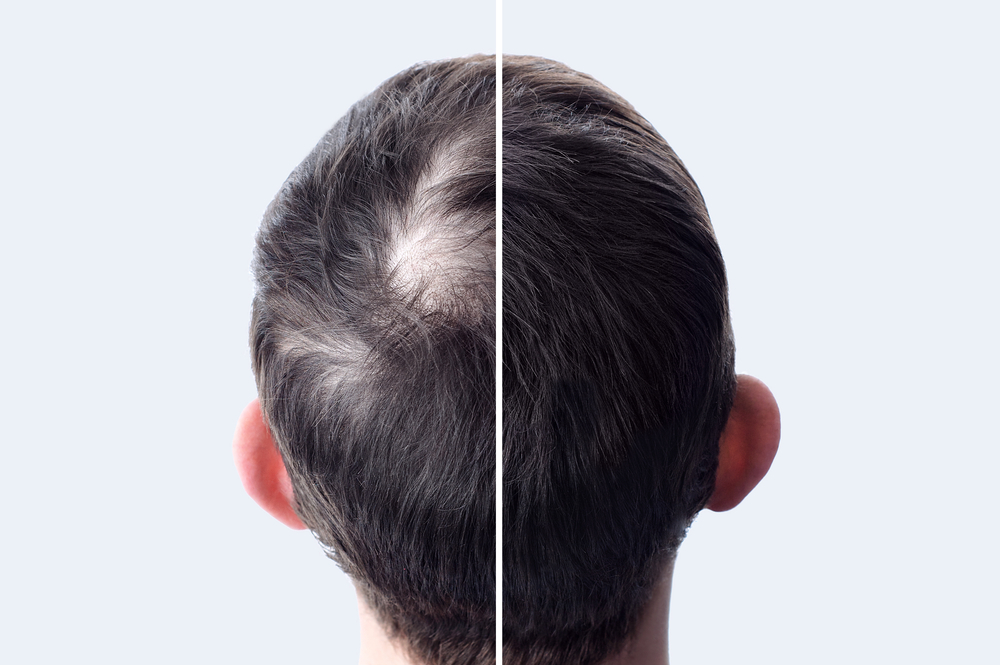
Low Hair Density: Meaning, Causes, Treatments and More
Low hair density can be a concern for many people, affecting both men and women. This condition, where the number of hair follicles on the scalp is lower than average, can lead to visible thinning and an overall reduction in hair volume. In this article, we will explore the meaning of low hair density, its causes, available treatments, and more to help you gain a comprehensive understanding of this common issue.
What Is Low Hair Density?
Low hair density refers to the condition where there are fewer hair follicles per square inch of the scalp compared to the norm. This results in a less dense appearance of hair, which can make the scalp more visible. It’s important to differentiate low hair density from hair loss; while low density means fewer follicles, hair loss pertains to the actual shedding or thinning of hair from those follicles.
Causes of Low Hair Density
Several factors contribute to low hair density, including genetics, hormonal changes, and environmental influences. Understanding these causes is crucial for addressing the issue effectively.
Genetic Factors
Genetics play a significant role in determining hair density. If you have a family history of thinning hair or baldness, you might be more predisposed to experiencing low hair density yourself. Hereditary conditions such as androgenetic alopecia, often known as male or female pattern baldness, can lead to reduced hair density as you age.
Hormonal Changes
Hormonal imbalances can also affect hair density. For example, conditions like polycystic ovary syndrome (PCOS) in women or thyroid imbalances in both men and women can lead to thinning hair and decreased density. Hormones regulate the hair growth cycle, so any disruption can impact overall hair health.
Environmental Influences
Environmental factors such as poor diet, exposure to harsh chemicals, and excessive heat styling can contribute to low hair density. A diet lacking essential nutrients like vitamins and minerals can weaken hair follicles and impair growth. Additionally, frequent use of harsh shampoos or styling products can damage hair and reduce density over time.
Medical Conditions
Certain medical conditions can cause low hair density as well. Autoimmune disorders like alopecia areata lead to sudden hair loss in patches, affecting overall density. Chronic illnesses and treatments like chemotherapy can also impact hair density significantly.
Treatments for Low Hair Density
Addressing low hair density involves a multi-faceted approach, including lifestyle changes, medical treatments, and professional interventions.
Lifestyle and Dietary Adjustments
Improving your diet can have a significant impact on hair density. Incorporate foods rich in vitamins and minerals such as iron, zinc, vitamin D, and biotin. A balanced diet with plenty of fruits, vegetables, lean proteins, and whole grains supports overall hair health. Additionally, reducing stress through practices like meditation, yoga, or regular exercise can also promote better hair growth and density.
Preventing Further Reduction in Hair Density
Preventing further reduction in hair density involves maintaining healthy hair practices and addressing underlying causes. Here are some tips:
- Avoid Excessive Heat Styling: Frequent use of hairdryers, curling irons, and straighteners can weaken hair. Use these tools sparingly and always apply a heat protectant.
- Use Gentle Hair Care Products: Choose shampoos and conditioners that are free from sulfates and harsh chemicals. Opt for products designed to nourish and strengthen hair.
- Regular Scalp Massages: Massaging the scalp can stimulate blood flow to hair follicles and promote healthier hair growth.
- Seek Professional Advice: Regular check-ups with a dermatologist or trichologist can help monitor hair health and address any concerns early on.
Conclusion
Low hair density is a condition that can impact confidence and self-esteem, but understanding its causes and available treatments can help manage and improve the situation. Whether the underlying issue is genetic, hormonal, or environmental, there are various approaches to enhance hair density and promote overall hair health. By adopting a holistic approach that includes lifestyle changes, medical treatments, and professional interventions, you can take effective steps toward achieving a fuller and healthier head of hair.
Need Hair Replacement and Hair Loss Services in Las Vegas, NV?
Backed by over 30 years of hands-on experience, JC Chicago Hair Creators is a leader in hair replacement. It is safe to say we specialize in the business of happiness and self-confidence. Are you experiencing hair loss, a receding hairline, thinning hair, or baldness? This is called Alopecia. It happens to men, women, and children. Look no further; we have the solution! Our process is simple and rewarding. We personally examine your scalp and your skin condition. From that point, we then gather as much information as possible to determine the best hair treatment suited for you. Experience a completely licensed and highly trained staff. Call now to scheduled an exam!
Categorized in: Hair Density
